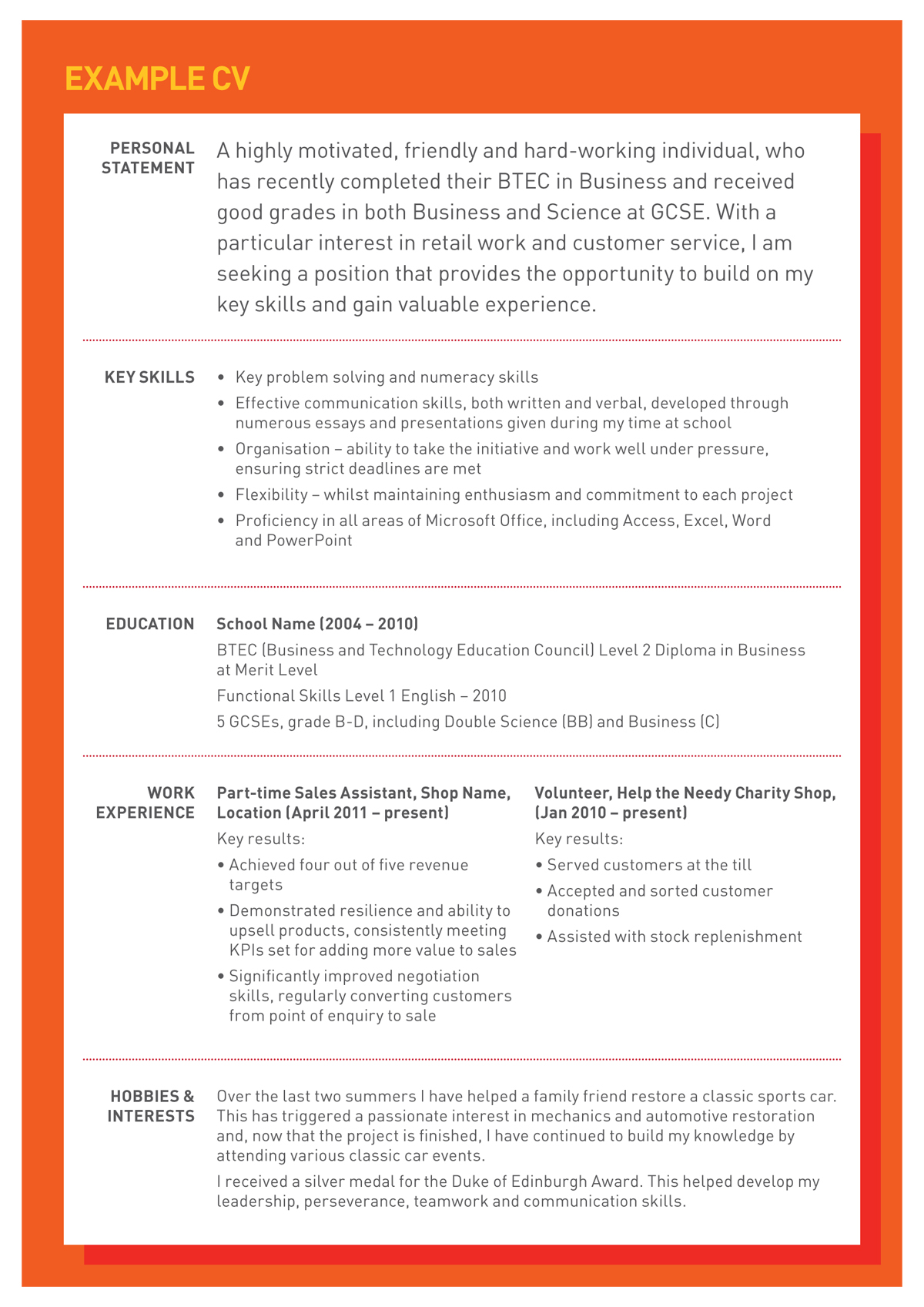CV Tips
When you are looking for a job, an up to date CV is one of the most important things you can have. Employers and recruiters use it to decide if you are a good fit for the job. Sometimes they can make that decision in seconds – just from looking at your CV!
Just left school? Working mum, or coming out of retirement? Wherever you are in life, these tips will help you make sure your CV is something employers want to see.
Remember what your CV is for
It’s not just to show employers what you’ve done. It’s to show employers who you are and what you CAN do.
You can hand it out at job fairs, or upload your CV if you are applying for jobs online.
Give your CV a clear structure
Have your name at the top, followed by your phone number and email address so they are easy to find.
Have a sentence or two about yourself – this is your chance to show off your relevant life and work skills, and say why you should be hired. This is known as a personal statement.
Next list your work history, starting with your most recent work. List a few successes or achievements in each job.
If you are just starting out in the world of work and do not have much experience yet, you can include any work experience, Saturday jobs or volunteering you’ve done. Again, list a few successes or achievements against each role.
Finish up the CV with your qualifications and details of your education (e.g. where you studied along with your subjects and grades).
Keep your CV short. One page is fine if you’re just starting out in the world of work. Two pages is the average size for a CV. Three pages is usually too long – a recruiter may not want to read it all.
Keep your CV’s design basic and avoid confusing colours, designs and fonts. Plain text on a Word document is fine.
What to leave out of your CV
Do NOT include:
- Age
- Date of Birth
- Gender
- Religion
- Relationship status
- Nationality
These things have nothing to do with your ability to do a great job, and the employer does not need to know them.
Be honest
Don’t be afraid to be honest. If you’ve just left school, no-one is expecting you to have won a national award or set up your own multi-million business. If you’ve had kids and are returning to work, it’s fine to put your role down as “full-time parent” with the dates you have been away from work. Don’t lie, because lies can catch you out. If you lie and get the job you might not enjoy the job because it’s at a level that’s not right for you. It’s better to be honest and get a job that’s a good fit for you, giving you a chance to shine and grow with people who hired you for who you really are.
Impress in seconds with your personal statement
A personal statement is a sentence or two at the top of your CV. It sums up your experience, skills, achievements and attitude. In just a few seconds you can show employers what you can offer and why they should hire you.
Example personal statements:
Student: “Sixth form student at Stonebridge College. Practical work experience with retail weekend work (including cash handling) and summer catering work in restaurants. Looking to start a business career with work that develops my business skills and includes customer service.“
Mature jobseeker returning to work: “Results-oriented management-level professional with 15+ years of proven success in the retail and catering industries. Confident leadership and networking skills with experience of managing large teams (20+).“
Tweak your CV to match the role
You can and often should have more than one CV. You could have the skills and qualities to fit many roles, but the CV you include with a job application should match the job you are applying for. For example, if you have got catering and marketing experience and you are applying for a marketing role, you should have a CV that puts a focus on your marketing strengths.
When you are just starting out in the world of work, tweaking your CV can be as simple as changing what you say in your personal statement to show you are a good match for the role you are applying for. If the job vacancy talks about good communication skills as a requirement, mention in your personal statement that you have proven communication skills due to a relevant past job you have worked in.
Talk about your achievements
In each job or work experience role you add to your CV, talk about your achievements or successes.
You can also talk about what skills you used in your role. The top life and work skills that employers want to know you have are communication, self belief, self management, teamwork and problem solving.
Example achievements could include:
- Praised by manager for handling a difficult situation or angry customer
- Made employee of the week/month/year
- Learned new skills or gained qualifications/training as part of the role
- Given extra responsibilities
- Helped to increase business success due to your work (e.g. business popularity, sales figures, monthly customers)
Still not sure? Here is an example CV.
There are so many CV templates on the web. These are templates that lay out an example CV structure so that you have a visual guide for how you can put together your own CV. You can look for CV templates online, or work with the example below.
Be job ready... with your up to date CV
Once you have made a CV you can update it easily over time. You can tweak it to match specific jobs you are applying for too.

Download A Handy Guide to Interviews

Take the CV Quiz!


